In pictures: The classroom book corners boosting literacy across East Africa
Explore the book corners established by the Madrasa Early Childhood Programme in community preschools across Kenya, Uganda and Tanzania
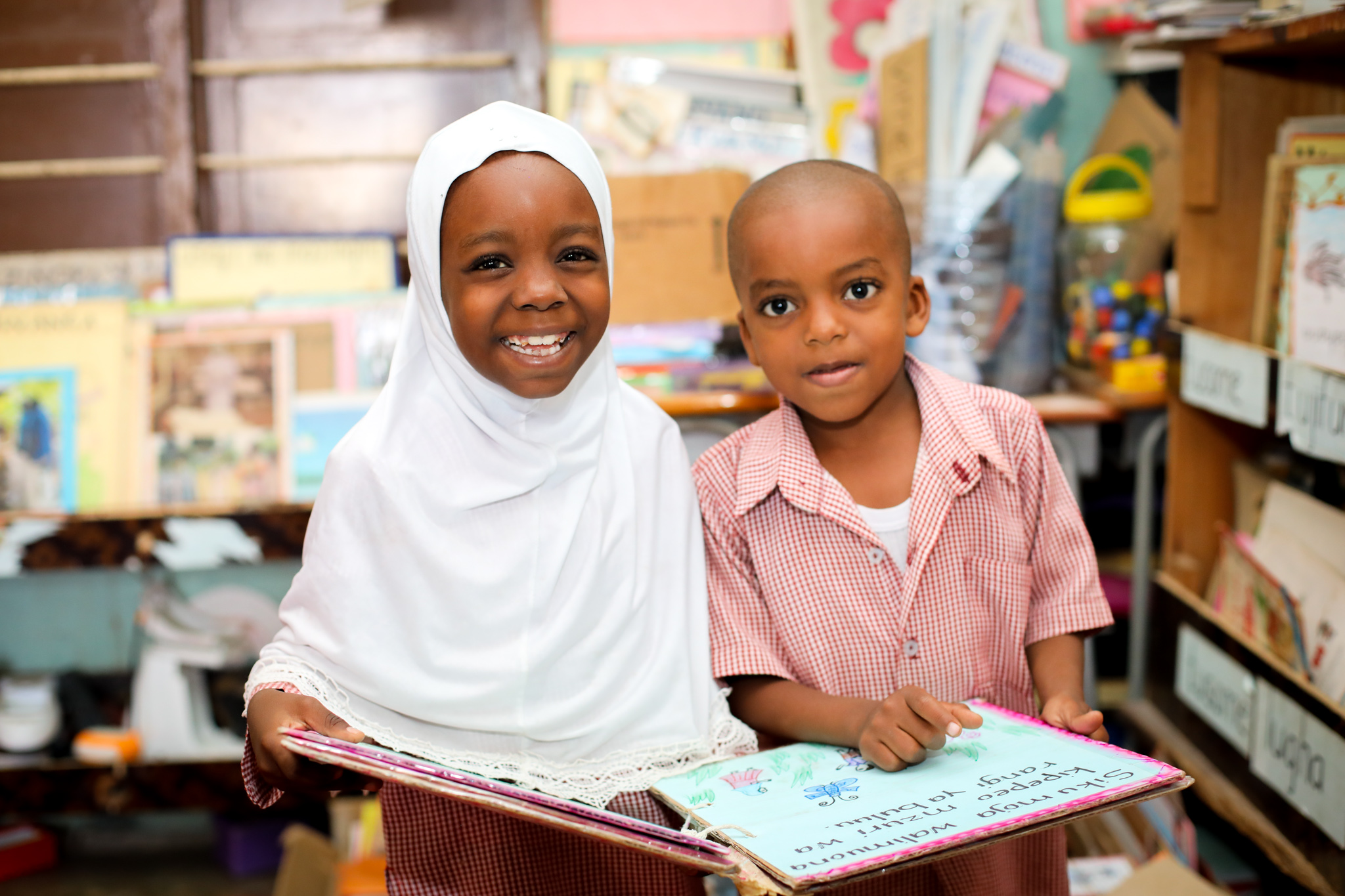
For every young child, books provide new worlds to explore, imaginary characters to befriend and, crucially, opportunities to build literacy in an engaging and playful way. Put simply, access to books is an extraordinarily powerful way to promote children’s learning and development.
Across East Africa, book corners are a requirement for classrooms in preschools, but tend to be either non-existent or under-resourced and rarely used. Changing this narrative and establishing functioning, sustainable and accessible book corners in preschool classrooms is integral to the Madrassa Early Childhood Programme’s (MECP) approach.
Initially established as a programme of the Aga Khan Foundation in 1982, MECP is now a registered national organisation in Kenya, Tanzania and Uganda. Since its inception, MECP has supported over 200 marginalised communities to establish and sustain community owned preschools that deliver high quality early learning and holistic ECD for young children. Critical to this are classrooms that host book corners bursting with stories to spark children’s imagination, an approach MECP also supports public preschools to adopt.
As MECP celebrates its 40th year, we step into some of these classrooms and explore the book corners boosting literacy across East Africa…
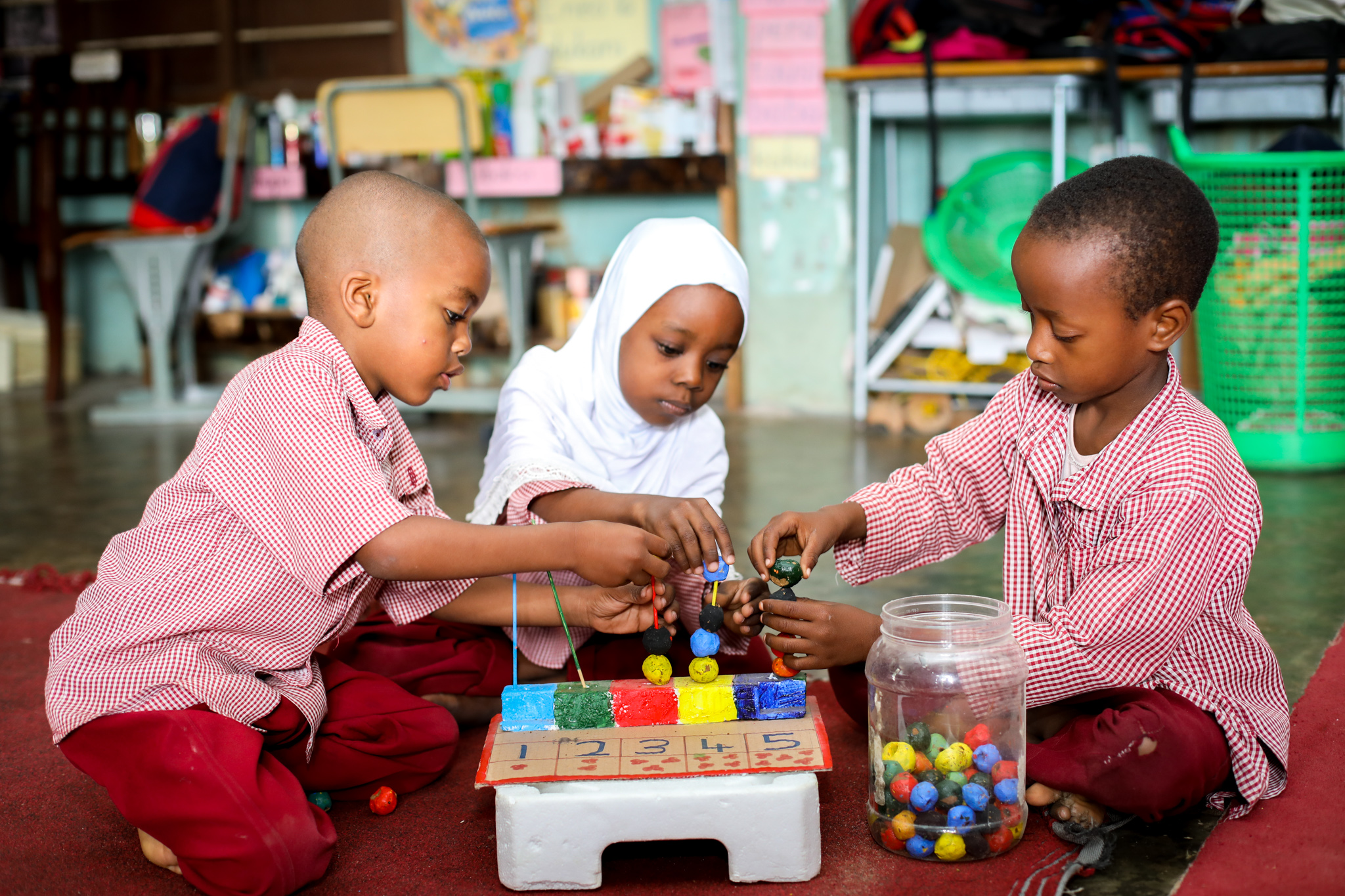
Over the last 40 years, MECP has delivered professional development to 8,000 teachers and improved ECD care and services for more than a million children. ‘Active learning’ is at the heart of MECP’s ethos – promoting child-centred learning where children can interact with one another, use playful learning materials to express their creativity, make their own choices in the classroom and regularly discuss their experiences to improve language development.
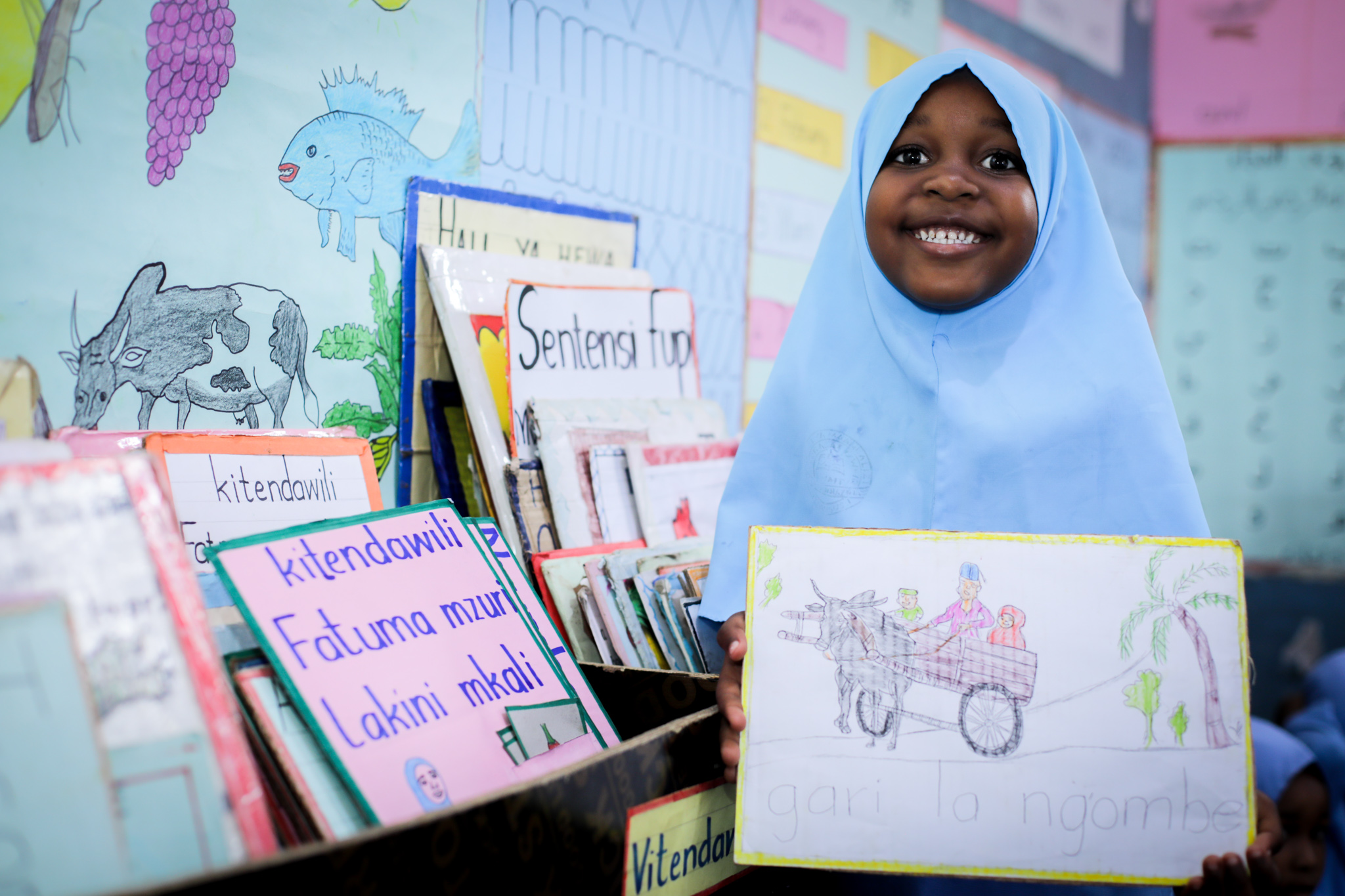
In MECP’s book corners, you’ll find stories and books handmade by teachers using low-cost materials, like old books, magazine cut-outs and drawings. This enables teachers to maintain the book corners when financial resources are low and ensures that the stories are relatable for the children. Teachers harness their creative talent to dream up stories with their children in mind; the stories have recognisable characters and scenes – and written in languages the children understand. In this classroom in Zanzibar, you’ll find books in Swahili, Arabic and English.
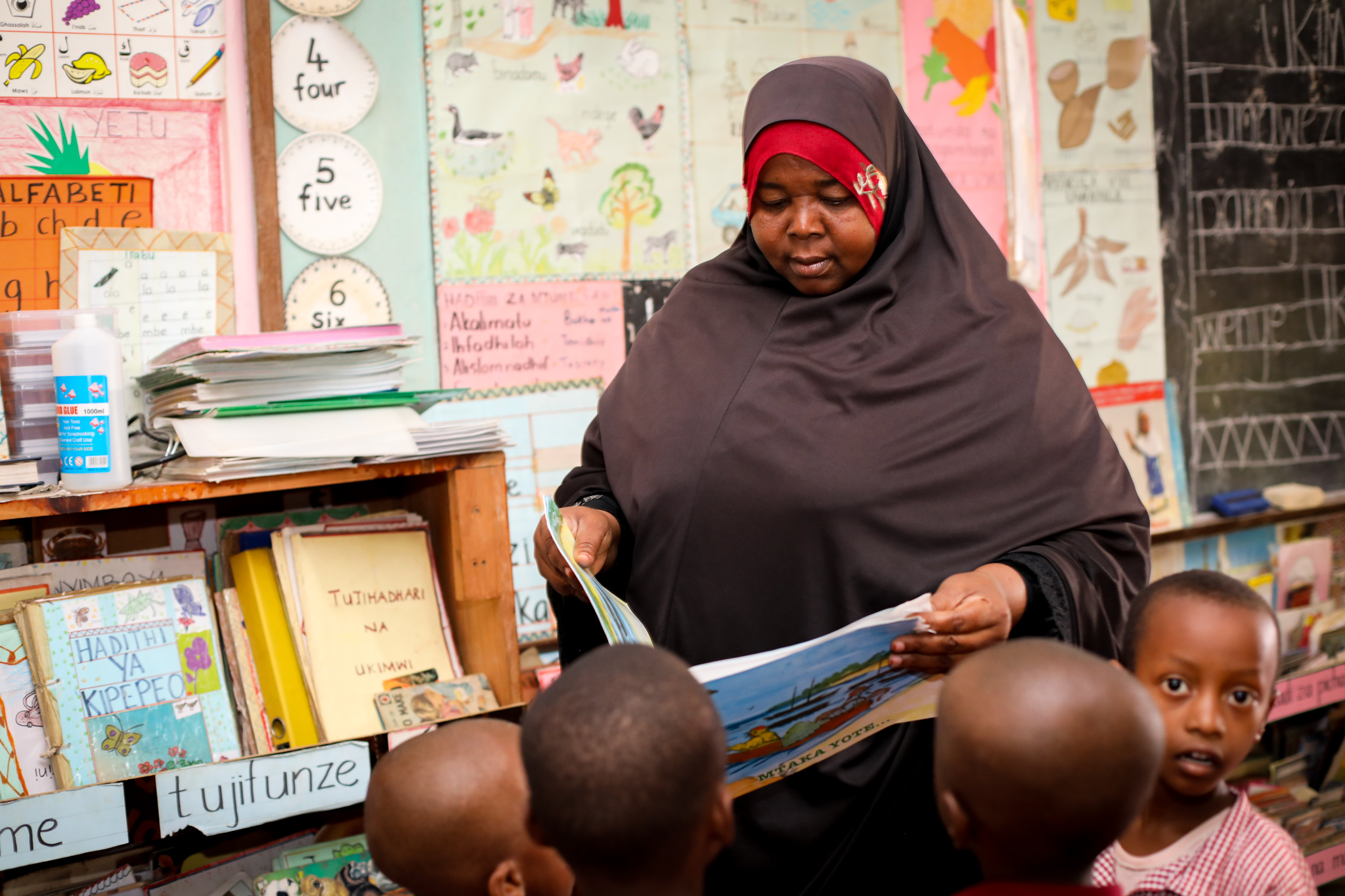
MECP’s government-recognised teacher professional development courses enable teachers to develop the skills to effectively build a culture of reading in their classrooms, something lacking in many other teacher programmes in East Africa. Teachers make sure they carve out time to spend in the book corner every day, something other teachers who visit these classrooms observe, inspiring them to grow the same culture in their classrooms.
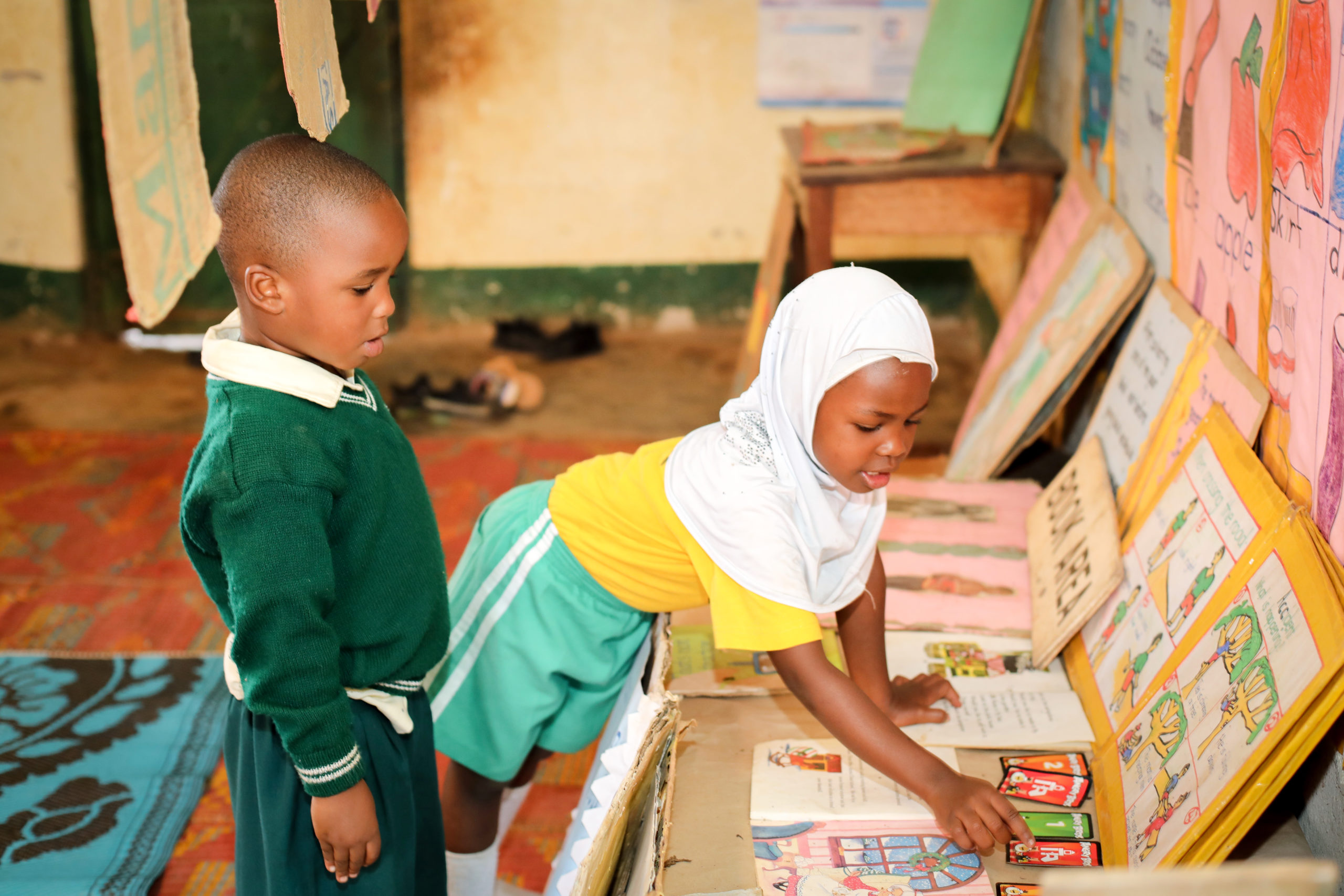
Classroom mapping is a vital aspect of MECP’s teacher professional development. Teacher trainees take time to map out how they can make their classroom stimulating, age-appropriate, playful, and inclusive learning environments. Through this the teachers design the space so the book corners are easily accessible and attractive to children. When teachers add new books to the shelf, you’ll find children flocking to the corner to escape into new worlds engaging in imaginative play.
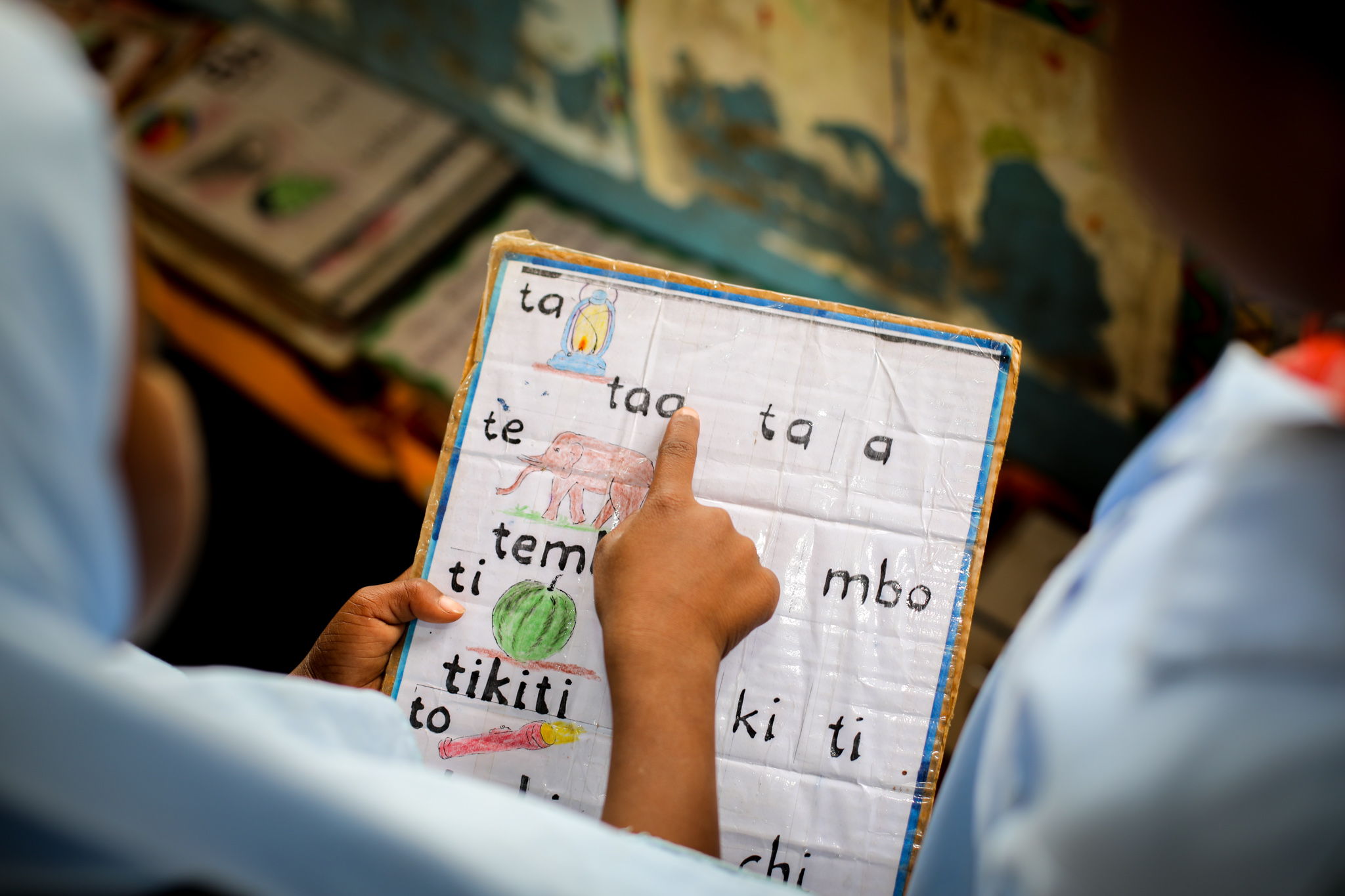
Many children across East Africa are not reading at their expected age level (see Uwezo’s ’Are Our Children learning’ reports for all three countries). In 2017, four Ministry of Education officials visited an MECP supported community–owned preschool in Kenya and expressed amazement at the reading level of the children, all of whom could read and write in three languages. By having the opportunity to access books, children develop their confidence and early literacy skills at an earlier age, at the start of their education journey.
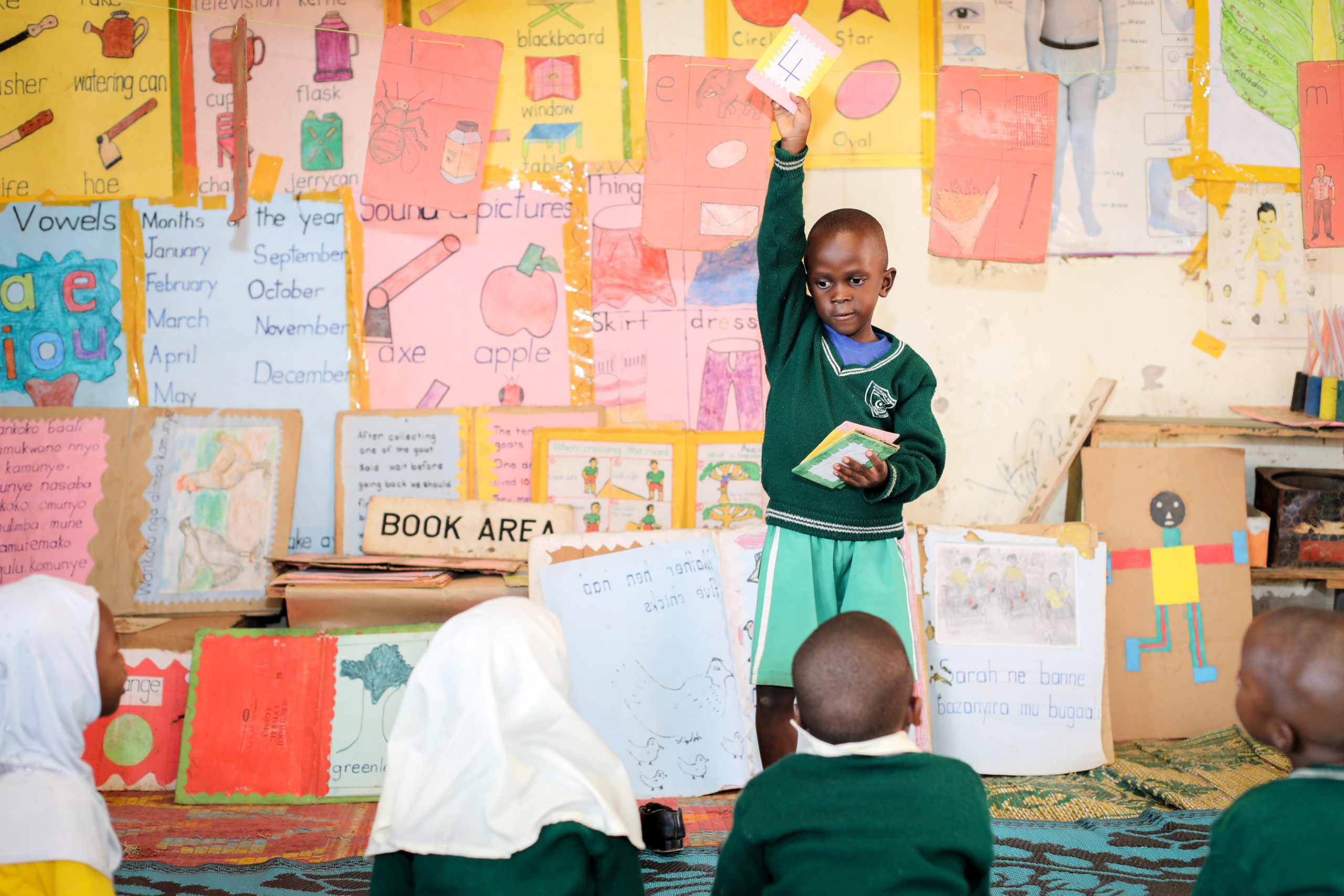
It is not only children who benefit. A preschool in Kilifi County, Kenya, also hosts adult literacy classes and while the parents wait, they pass the time flicking through and reading the books. At the annual district adult literacy competition these parents were among the top performers and attributed this, in part, to the time they spent in the book corners. Yet, their greatest achievement was finally being able to sit with their child and read together.
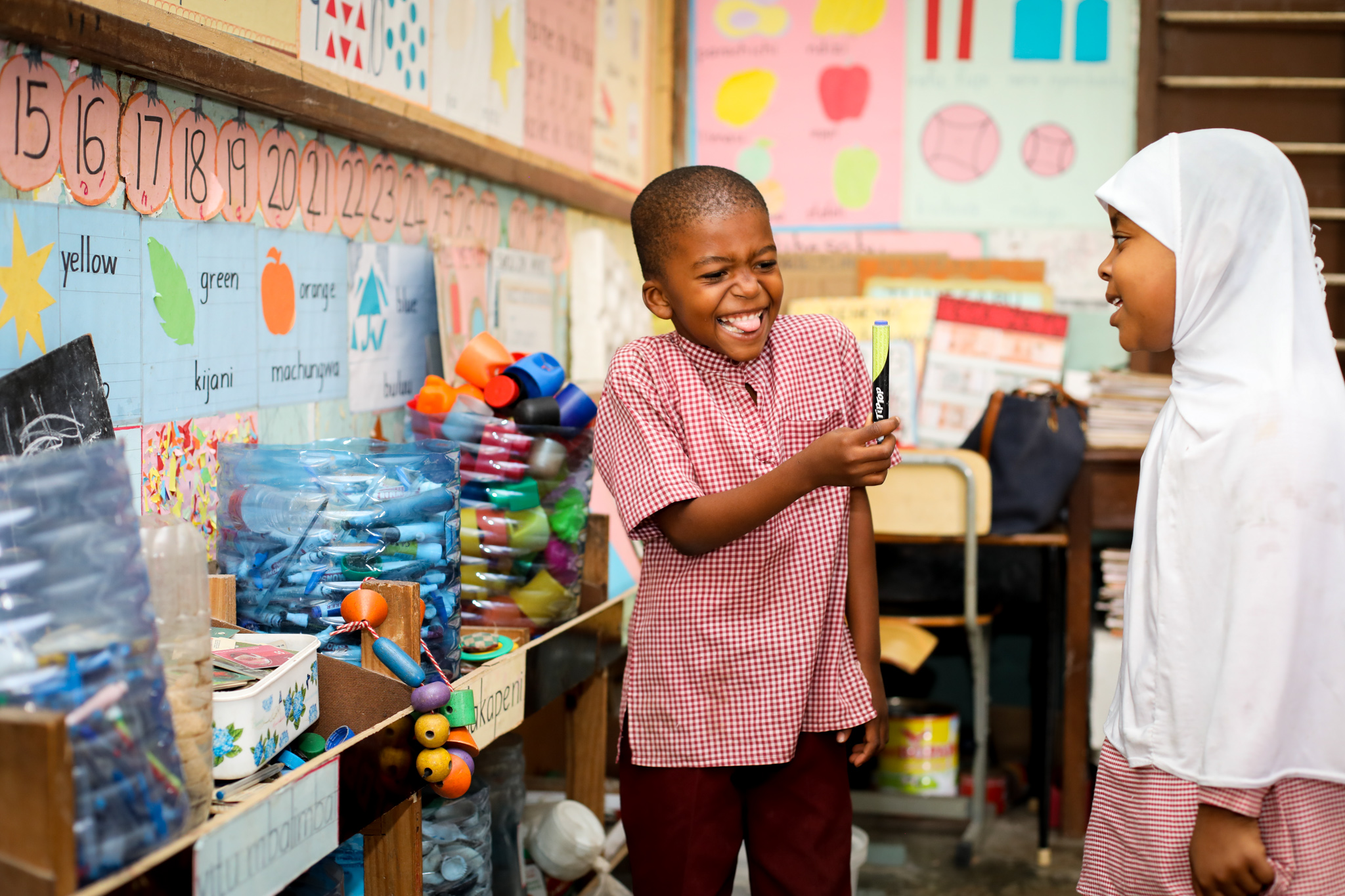
In Kenya, Uganda, and Tanzania literacy levels have been historically low, particularly in the marginalised communities where MECP works. One of MECP’s many achievements over the past 40 years of dedicated commitment to improving ECD care and services has been to help build a stronger reading culture, including reading for joy. Having books at their fingertips from such an early age is one critical component of enabling young children to develop their literacy skills so important to life-long learning and fulfilling their potential.
Photos by Kevin Oloo.
Words by Kerensa Keevill, Amina Mwitu, and Everlyn Achieng.
As MECP celebrates its 40th anniversary, there are many partners to thank and appreciate. Past and ongoing financial and technical support enables MECP to ensure equitable access to quality early childhood care and service. The list is long, but to name a few, MECP would like to thank Global Affairs Canada, Comic Relief, LEGO Foundation, Dubai Cares, Grand Challenges Canada, ELMA Philanthropies, Hilton Foundation and UNICEF.
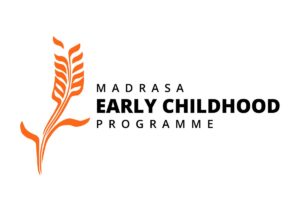
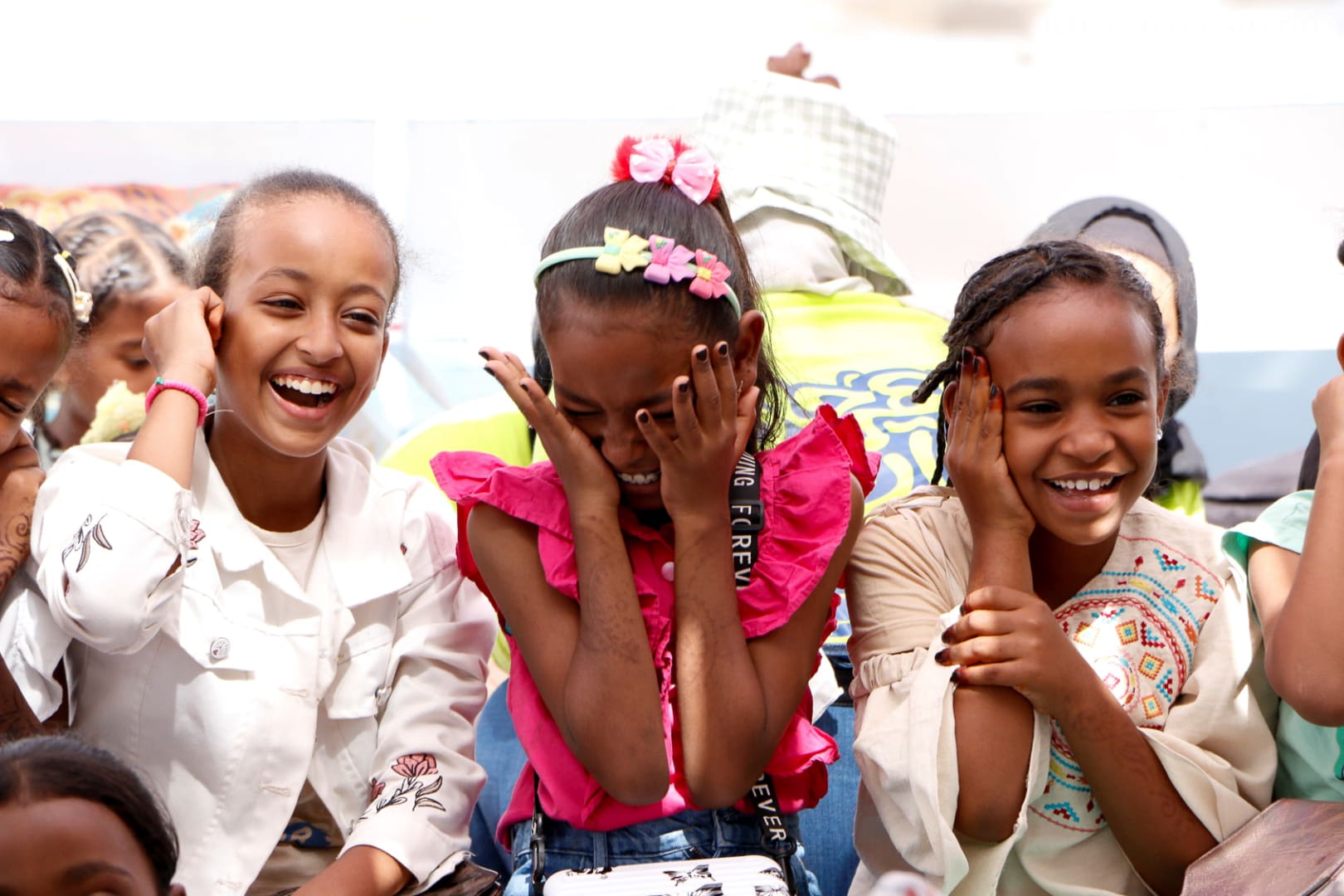
Support our work Your donations are helping us build a future where we all thrive together.